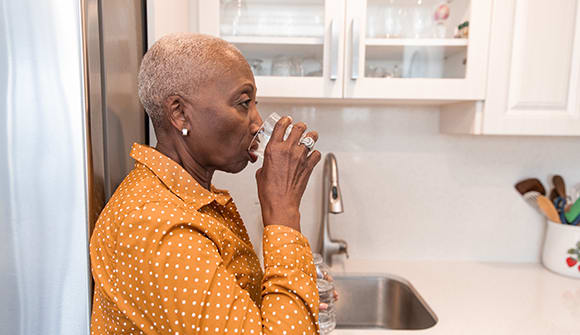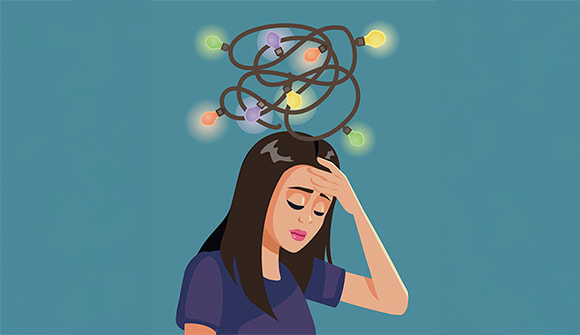Pandemic drinking
Why more women have turned to alcohol.
Article Date:

What was once mild social drinking or an infrequent nightcap pre-COVID-19 quickly elevated to alcohol abuse for many people during the pandemic, particularly women. Whether feeling stuck, isolated or anxious, pouring another glass served as a welcomed escape for some, and an easy practice when spirits can arrive right at the front door.
“Changes in buying behavior – from going to a store to online purchasing and home delivery – eased alcohol access by reducing public shame associated with bulk buying,” said Lina Missova, MD, an addiction medicine specialist with Baptist Behavioral Health.
Alcohol abuse has many health risks and can affect the brain, heart and liver. There is a link between alcohol intake and breast cancer.
Drinking dependence?
Dr. Missova explained the increase in alcohol abuse during the pandemic may be tied to:
- More stress and anxiety
- Physical distancing and isolation
- Disrupted access to mental health treatment
These factors may have a larger impact on people already suffering from alcohol use disorder (AUD), overusing alcohol despite it negatively affecting their life and relationships, according to Dr. Missova.
Women’s wine culture
Whether through movies, media or girls’ nights, wine culture became an accepted form of fun or relaxation pre-COVID-19. But women faced additional stress with the pandemic.
“It was challenging to manage work and family life while dealing with school closures, increased isolation and mood disorders such as anxiety and depression,” Dr. Missova said.
If stress motivates you to drink and you want to cut back, Dr. Missova recommended trying to practice self-care with exercise or meditation.
Overdrinking or over drinking?
Wondering if routinely reaching for a bottle is harmless? Here are some red flags to help recognize if your drinking is a problem, according to Dr. Missova:
- Consuming more alcohol than intended
- Wanting to halt alcohol use without success
- Feeling strong cravings for alcohol
- Drinking despite it causing problems with loved ones, job performance or your health
- Dropping activities that were once enjoyable so you can drink
- Risking injury (using machinery or driving while under the influence)
- Forgetting events when you drink
- Needing to increase the amount of alcohol to feel the effects
- Dealing with insomnia, aggravation, nervousness, sadness, nausea and/or sweating when the alcohol wears off
When to get help
If you’re struggling, Dr. Missova advised asking for help and talking to your primary care physician.
“If you’ve made an unsuccessful attempt to control your alcohol consumption, it’s time to seek professional help to aid with detox,” she said. “Withdrawal symptoms can be life-threatening and range from insomnia to severe complications like seizures. Most patients undergoing alcohol withdrawal can be treated safely and effectively as outpatients and 10% will require hospital admission for medically monitoring detox. Withdrawal should be followed by treatment for alcohol dependence.”
If you or your loved one needs support for alcohol abuse, Baptist Behavioral Health is ready to help. Call 904.376.3800 for assistance with scheduling with a mental health provider.



